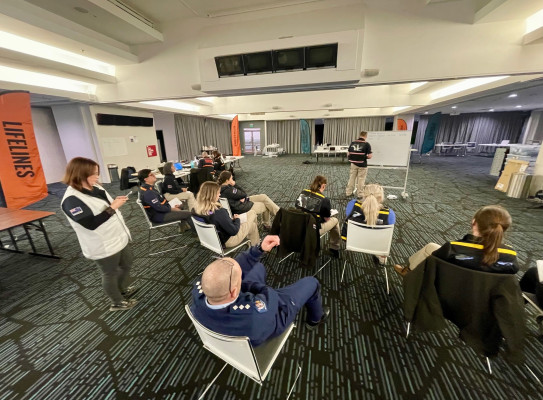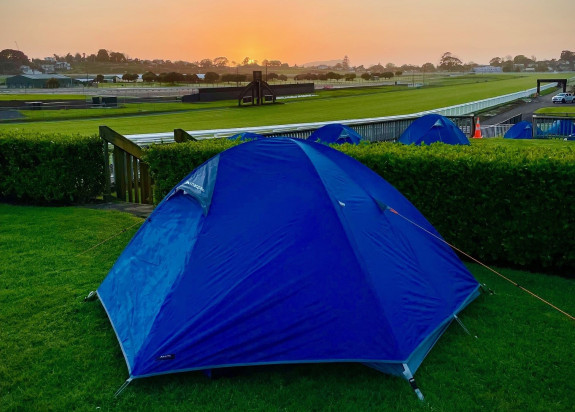Contributing to the incredible work of New Zealand’s emergency management groups

Find out about Nico’s experience during the recent NZ Emergency Management Assistance Team (EMAT) annual readiness training exercise.
Responding to natural hazard emergencies is not something we can leave to chance. Aotearoa New Zealand – our ‘land of the shaky isles’ – is subject to the whims of tectonic plates and volcanoes, oceans, and geological processes. The risks our environment poses are significant, and our responders must be prepared to act at any time. Participating in emergency response exercises keeps the country’s experts on their toes, ready to step up to the plate when ‘the big one’ hits.
I’d just boarded the plane ready to fly out to Tāmaki Makaurau / Auckland for our yearly EMAT training week. My phone pinged and I read that once we touch down, we’d begin the no-notice exercise — I knew we’d be in for a challenging few days.
Here at GNS Science, we undertake research that seeks to improve resilience to natural hazards at national, regional, and community levels. One way we achieve this is by having our team available to contribute to the EMAT, a fly-in team operating under the National Emergency Management Agency.
After a thorough training and selection process, GNS scientist Nico Fournier was selected to be a member of the EMAT three years ago and now regularly deploys and trains with the team. Nico was selected for his leadership and emergency response experience, however his extensive technical skills in volcanology, geohazards and mountain rescue also come in handy.
Nico has now been deployed three times, first to the 2021 Westport floods, and more recently to Thames-Coromandel prior to and during Cyclone Gabrielle, and to Hawkes Bay to assist the region’s transition from response to recovery following the same event.


Being part of the EMAT is incredibly rewarding. You get to work with the very best in the sector and some unbelievably dedicated staff in the regions, and have the opportunity to make a really positive difference on the ground in challenging times. I relish the challenge each time of hitting the ground running and needing to create or foster a high performing team in under 15 minutes.
This most recent training exercise was developed to build technical expertise and readiness. The exercise played out the aftermath of a tsunami-generating earthquake that had impacted a large part of Aotearoa New Zealand and was a challenging three-day, no-notice exercise that launched right as the team was travelling to the training location.
The team was tasked with establishing the alternative National Crisis Management Centre at Ellerslie Racecourse and coordinating a national response to the training scenario.
To add to the challenge, the Centre was evacuated on the last morning and relocated to the Deployable Coordination Centre of three inflatable Covertex shelters. Here, the team was tasked with re-establishing the crisis management centre and coordinating a national response to the training scenario.
The EMAT is expected to be self-sufficient during deployments, so everyone slept in their personal blue tents and were fuelled by their stored ration packs for the first three days.
“NEMA is delighted to have someone with Nico’s expertise as part of our Emergency Management Assistance Team. The EMAT plays a crucial role when specialist emergency management capability is required in regions affected by emergencies. Nico and his EMAT colleagues are dedicated professional EM operators with varying experience and backgrounds but with a shared goal of keeping our communities safe. They work with and support those managing emergencies, thus helping ensure New Zealanders receive a consistent level of support in any emergency, wherever and whenever it happens,” said John Price, NEMA Director of Civil Defence Emergency Management.
The team performed very well in the recent training exercise and communities can sleep easier knowing response experts are ready and waiting to be called upon when needed to respond to natural disasters and other emergencies.